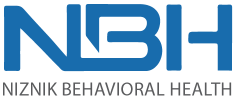Mental Health Awareness Week: Depression and Substance Abuse
October 7th through the 13th is Mental Health Awareness Week! Dedicated to raising awareness about mental health disorders and resources for help, Mental Health Awareness Week was established in 1990 by the National Alliance on Mental Illness and the U.S. Congress. This year, the theme is “curing the stigma” which so often surrounds both topics of mental health and substance abuse.
Despite popular stereotypes and misinformation, substance abuse and addiction often stem from underlying traumas or mental health disorders which require treatment for meaningful and lasting change. Overcoming addiction is much more than simply quitting- it’s a total life transformation that begins within.
Depression and Substance Abuse
One of the most common co-occurring substance abuse disorders is depression. This debilitating mental health disorder is much more than simply experiencing moments of sadness or crying. Clinically, depression is defined as experiencing five or more of the following symptoms within a two week period:
- Depressed mood for the majority of the day
- Loss of interest in most activities
- Significant weight loss or decreased appetite
- Restlessness
- Lethargy or fatigue
- Trouble concentrating
- Thoughts of death or suicide
For some people living with depression, the desire to escape the feelings of emptiness and hopelessness is overwhelming. 20 percent of Americans with depression or anxiety also struggle with substance abuse disorders. Some substances, like heroin, may seem to alleviate symptoms of depression. By flooding the central nervous system with artificially produced dopamine, heroin and other opioids provide momentary highs that negate depressive feelings. However, one common symptom of opioid abuse is depression or the worsening of depressive symptoms. This is because long-term use of substances which artificially produce dopamine in the brain cause natural production to decrease.
Addiction is a complex combination of mental and physical dependence. Recognizing that drugs and alcohol don’t solve the underlying problem of depression is the first step in finding help. Seeking dual diagnosis treatment for depression and addiction helps to empower one with positive tools and coping mechanisms for a better, brighter future.

